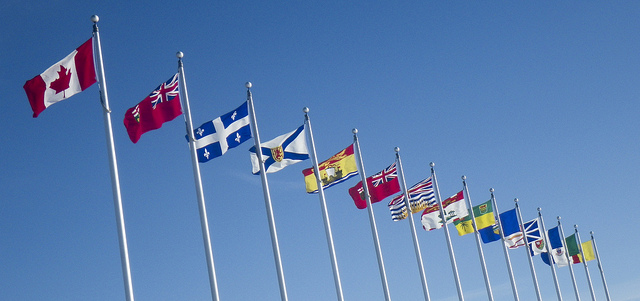The Council of Canadians was in Charlottetown last week asking the premiers to take a stronger stand on health care and to defend public health care from the threats posed by so-called “trade” agreements.
And while the premiers have now asked for more funding from the federal government for health care, they are being meek, not adequately defending perhaps the greatest social program Canada has, and are completely failing to respond to the ways in which CETA will undermine public health care.
CBC reports, “P.E.I. Premier Robert Ghiz, who is the host of the Council of the Federation this week, said all the premiers agree the federal government should increase its share of funding for health and infrastructure. …While the federal government is contributing to health care funding, Ghiz said it simply isn’t keeping pace with changing demographics and an aging population — all of which will have an impact on the provinces. …A spokesperson for Health Minister Rona Ambrose said the government is providing the provinces and territories with record funding for health care.”
The article notes, “The federal government has guaranteed the provinces an annual 6-per-cent increase in health care funding until 2016-17. After that, increases will be tied to growth in nominal gross domestic product, a measure of GDP plus inflation — but is guaranteed to be at least 3 per cent.” The Globe and Mail echoed that by reporting, “In December, 2011, the federal government changed its health-care funding formula with its take-it-or-leave-it, 10-year health accord that would guarantee an annual 6-per-cent increase until 2016-17. After that, increases would be tied to growth in nominal gross domestic product, a measure of GDP, plus inflation.”
But neither of these articles point to what the dollar cost of this formula will be. The Guardian, however, notes, “The premiers released a report last year showing this change would amount a $36-billion cut in total health funding to the provinces over 10 years.”
Disappointingly even beyond that $36 billion, the premiers — whose consent is required for the Canada-European Union Comprehensive Economic and Trade Agreement — did not make a public point about the increased health-care costs related to CETA.
Council of Canadians health-care campaigner Michael Butler has pointed out, “It is estimated the changes to patent protection for pharmaceutical drugs will cost our public health-care system anywhere between $800 million to $1.7 billion annually. This is up to 13 per cent of the total drug costs Canadians pay annually (paying directly, through insurance plans, or by provinces). Internal documents from the federal government also estimated that the additional costs for patented drugs could be up to $2 billion, how they arrived at this figure and what it foreshadows is unknown.”
In May 2013, then-Ontario Minister of Economic Development, Trade and Employment Dr. Eric Hoskins and Health Minister Deb Matthews wrote the federal government saying, “Ontario has asked the federal government to refrain from making changes to the pharmaceutical patent regime that impose additional financial costs on Ontario or that would negatively impact our province’s economy.”
By October, the Canadian Press reported, “Prime Minister Stephen Harper has pledged to compensate provinces for any additional costs, which would only appear starting in 2023, assuming the deal is in place by Jan. 1, 2015. There was no pledge, however, to compensate individuals or private insurance plans.”
But how reassuring is this? How credible can it be to the premiers that Harper can make binding promises for a future government some eight years in the future that it will provide $2 billion on an annual basis to the provinces to offset increased drug costs?
And beyond this, as Butler highlights, “If CETA is ratified the likelihood of a National Pharmacare Plan becomes substantially more difficult (if possible at all) as we would face billions of dollars in lawsuits under the ISDS [investor-state dispute settlement] mechanism from European pharmaceutical companies.”
The premiers will meet again in January and set a dollar demand on the federal government for increased health-care funding. Already, some premiers are cautioning that the ask needs to be realistic or it will be ignored by the federal government. We’re not holding our breath. In response to the news that the provinces would be asking for more health-care funding, federal finance minister Joe Oliver stated, “No government in Canadian history has provided more funding to the provinces for health care, and it continues to grow.”
Photo: Martin Lopatka/flickr



